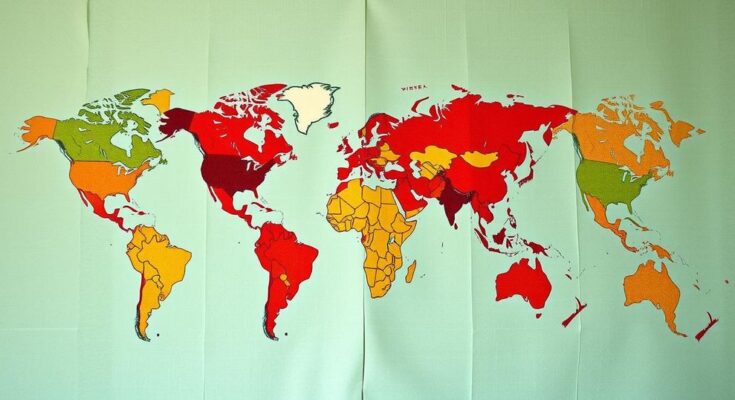The voluntary carbon market is under scrutiny for failing to protect human rights. Investigations reveal that carbon projects have caused harm to local communities while benefiting from the sale of carbon credits. Notable human rights violations have occurred in Kenya and Cambodia, raising questions about the efficacy of current oversight mechanisms, particularly those of Verra, the leading certifying body. Without proper accountability, the market continues to risk endangering vulnerable populations.
The recent findings from human rights organizations raise serious concerns about the integrity of the voluntary carbon market. This market, designed to allow individuals, companies, and governments to offset their greenhouse gas emissions through carbon credits, has been implicated in numerous human rights abuses. In-depth investigations reveal that projects intended to protect the environment can also negatively impact the communities they purport to benefit, as illustrated by cases in Kenya and Cambodia where significant violations occurred.
At the COP29 climate summit, a decision was made to expand the international carbon market after nearly a decade of negotiations. However, the roll-out of these markets has coincided with troubling reports about inflated claims of climate benefits and abusive practices within carbon projects. Organizations such as SOMO and Human Rights Watch have meticulously documented these issues, concluding that many carbon credit projects fail to uphold basic human rights.
For example, in the Kasigau Corridor REDD+ Project in Kenya, there were widespread reports of sexual harassment against women by male project staff. Despite these allegations spanning over a decade, action taken by the project was minimal, suggesting a systematic issue within the implementation of these projects. Similarly, the Southern Cardamom REDD+ Project in Cambodia resulted in the forced eviction of Indigenous communities from their land, with project officials denying any wrongdoing.
These projects have generated millions of carbon credits, purchased by influential companies, yet the accountability mechanisms in place have proven inadequate. Verra, the primary certifying body for these carbon credits, has come under scrutiny for its lack of thorough investigations into human rights claims associated with its certified projects. The reinstatement of the Kasigau and Southern Cardamom projects after temporary suspension highlights a troubling trend of overlooking the realities faced by affected communities.
Verra’s recent statements suggest an unwillingness to hold projects accountable for human rights violations, indicating a structural failure of the voluntary carbon market to protect vulnerable populations. Despite the market’s intention to create environmentally friendly solutions, the evidence points towards deep-seated flaws, including a disregard for the rights and welfare of local communities.
The voluntary carbon market was established to enable the purchasing of carbon credits as a means for individuals and organizations to offset their carbon emissions. This market emerged as a response to climate change, aiming to support projects that mitigate environmental harm. However, recent investigations have uncovered serious gaps in oversight and accountability, especially regarding human rights abuses associated with these projects. The complexity and opacity of financial arrangements in the voluntary carbon market often conceal the negative impacts on local communities who are allegedly benefiting from these projects.
In conclusion, the voluntary carbon market is currently failing to meet fundamental human rights standards, as evidenced by numerous reports of abuse tied to carbon offset projects. The systems in place, especially those managed by Verra, lack rigorous enforcement and accountability mechanisms to protect marginalized communities affected by these projects. Until there is a commitment to genuinely address and rectify these human rights violations, the integrity of the voluntary carbon market remains in question and poses further risks to vulnerable populations.
Original Source: www.aljazeera.com




